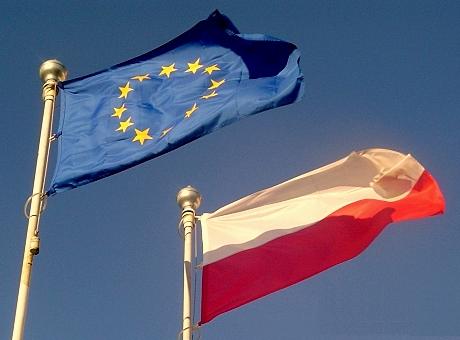Find Luke‘s other articles On Brussels here.
On 7 October, Poland, long a troublesome member of the EU, managed to send shockwaves through Europe — as well as democracies the world over. In its most flagrant anti-EU move yet, the Polish Constitutional Tribunal — which has been stuffed with government-backing justices in recent years — ruled that some EU laws are incompatible with the country’s constitution. This is incompatible with EU principles, because the primacy of EU law is a cornerstone of integration between the EU27.
What happens next is unclear, but the possibility of Polexit — Poland’s departure from the EU — has suddenly become very real. Could this jolt cause Warsaw to back down? Or is the Polish government fully prepared to pull their country out of the EU?
The backlash to the ruling was loud — but limited. Much of the furore came from pro-EU Poles and Polish communities in other EU member states. Donald Tusk, former Prime Minister of Poland and former European President, has led the pro-democracy charge, calling for protests and strikes until Warsaw backs down.
There have been major protests across Poland, from Warsaw, to Krakow, to Gdansk. But, given that Poles are among the most pro-EU peoples in the bloc, the backlash to the actions of the government has been somewhat mooted.
There is no clear reason as to why, but the answer might well lie in money.
In the 1990s, Poland’s economic transition from state monopoly to free market caused stark economic inequality. By the time Poland joined the EU in 2004, urban areas were fast catching up with their western counterparts. But in rural areas, little had changed since the revolution of 1989.
Then, in 2015, the right-wing Law and Justice party (Prawo i Sprawiedliwość) swept to power, winning the largest landslide since the restoration of Polish democracy. The party did so on a promise to listen to the “forgotten”, and to bridge the urban-rural economic divide. Being deeply socially-conservative, Law and Justice also played to fears that the country’s “traditions” and the “Polish way of life” were under threat from the too-liberal EU.
Through strengthening the welfare state in poorer and more rural areas, and by declaring war on Muslim migrants and LGBT Poles, Law and Justice was able to build a cross-society coalition of voters that delivered the party another outright majority at the 2019 election — and further emboldened its stances and actions.
Despite being staunchly Eurospectic, Poland’s strongly pro-EU electorate appear willing to overlook Law and Justice’s Euroscepticism in exchange for their pieces of red meat. Be that limiting abortion rights, increasing the welfare state or declaring war on transgender Poles, those pieces of red meat are what seemingly keep Law and Justice in power.
But the richness of that meat might now be about to be tested. The EU’s reaction to the Constitutional Tribunal has been the diplomatic equivalent of a shrug. But this should not be mistaken for ambivalence.
Ever since the Polish government announced that it would teach children that the EU is an illegal entity, Brussels had been bracing itself for something of this magnitude and resonance. When it finally came, the mood in Brussels was more one of resigned expectation.
The time for an almighty clash between Brussels and Warsaw is nearing – but it is not now. The clash between the Polish government and the Polish people, however, feels as though it is rather more here and now.
The red meat that Law and Justice has thrown to the Polish electorate has kept the Eurosceptic-Europhile paradox functioning. But now Poland’s exit from the EU has suddenly become a very real possibility.
Poles have a long, proud history of standing up for their rights — even when the odds seemed stacked against them. In 1989, most of the country went on strike until free and fair elections were granted. In 2017, Poles were able to halt, through mass protests, a series of judicial reforms that it was felt would weaken the country’s democratic systems. Then in 2020, Polish women walked out of work in protest at the perceived interference of the Catholic Church in abortion legislation.
Even in the midst of a pandemic, Poles were prepared to fight for their rights.
If Law and Justice presses ahead with a possible Polexit, it will pit itself against the people. At that point, all the red meat in Law and Justice’s arsenal will not make a difference — it will be the government vs the people. History suggests that this is a fight that the Polish people would win.
But Warsaw would also do well to consider the climate in Brussels. In 2017, as the UK’s attempts to leave the EU began to tear the social fabric of British society apart, Brussels made it clear to Westminster that it could choose to stay at any time. Until the final months of the UK’s membership, there was a real appetite to help the country change course and remain in the EU.
However, amidst the possibility of a Polish departure, there are no offers of contrition or compromise. In fact, Brussels seems oddly indifferent to Polexit – and that speaks volumes.

